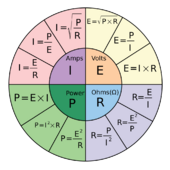foopysfarm
New Member
I'm having a hard time grasping fuses. Sizing them and where to use them. If my inverter has a built in fuse why do I need a fuse between my battery and inverter? Isn't it serving the same purpose?
On Will's Classic 400 watt system I'm wondering why there isn't a fuse between the main fuse and the DC fuse block but there is between the main fuse and the mppt controller? If the main fuse is sized for a 2000W inverter isn't it too larger for the 100A max DC fuse block?
I'm reading they protect wires and not devices...then couldn't I just oversize all my cables and not need fuses?
On Will's Classic 400 watt system I'm wondering why there isn't a fuse between the main fuse and the DC fuse block but there is between the main fuse and the mppt controller? If the main fuse is sized for a 2000W inverter isn't it too larger for the 100A max DC fuse block?
I'm reading they protect wires and not devices...then couldn't I just oversize all my cables and not need fuses?



